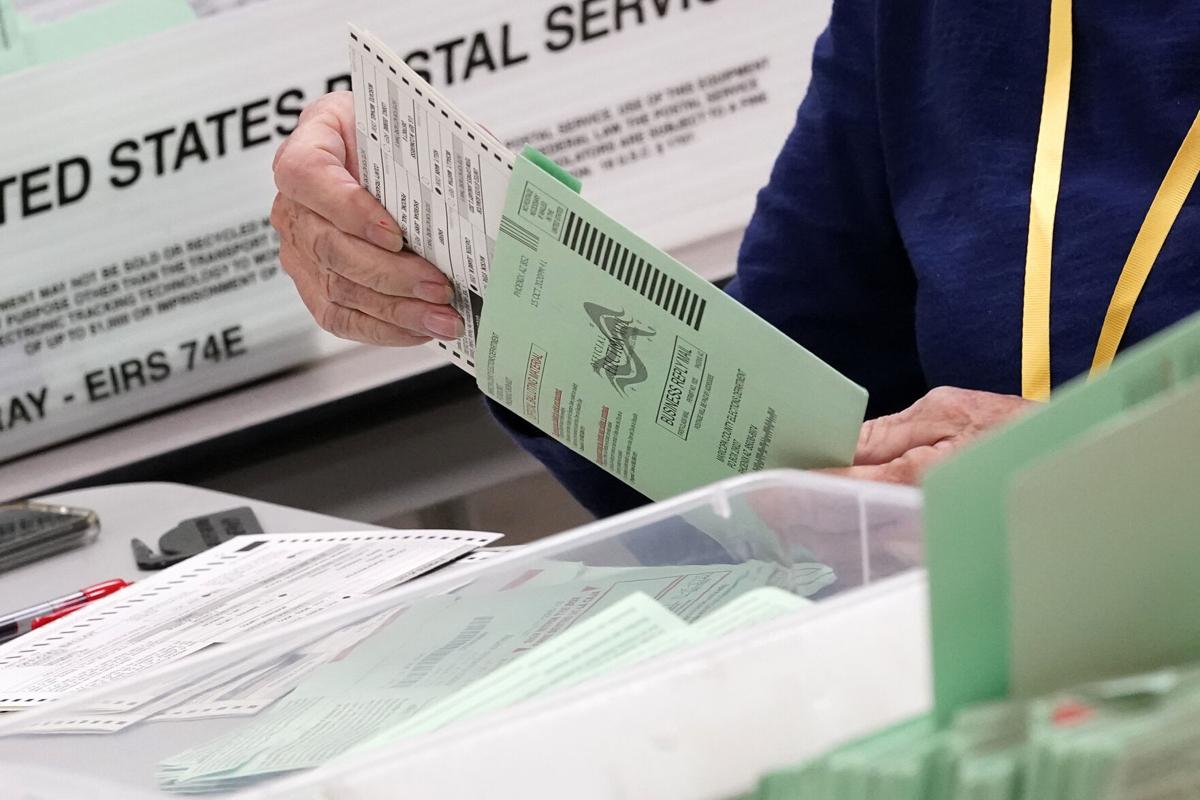The savvy conspiracists have a feel for when to stop.
They know you can make outrageous claims in certain venues, but not in others.
They know you can make broad accusations, but you should avoid getting so specific as to invite lawsuits.
They know how to keep the outrage simmering and the money flowing without having to backtrack.
This all became clearer last week after two episodes involving state officials looking into Arizona’s elections.
The first was the release by the new attorney general, Democrat Kris Mayes, of investigative reports and drafts written by investigators under her predecessor, Republican Mark Brnovich, about the 2020 election.
A key report completed in Sept. 2022, but never released till last week, showed that people who made big election-fraud claims in public suddenly turned shy when investigators came asking for evidence.
The second episode was a bizarre stretch of testimony at a legislative committee hearing on Arizona’s elections Thursday. The highly specific accusations of bribery and extortion led to even conspiracy-friendly legislators, such as Sen. Wendy Rogers, backing away and pointing fingers.
House Speaker Ben Toma said of the Thursday incident: “What should have been a joint hearing to examine commonsense election reforms devolved into disgraceful fringe theater.”
State Sens. Sonny Borrelli and Rogers, as well as former state Rep. Mark Finchem have, of course, performed frequently on that fringe stage. They spent much of 2021 and 2022 arguing that Arizona’s 2020 general election was rigged and should be decertified. They didn’t back it up, though.
Borrelli, during his frequent interviews on right-wing internet shows, said he would bring all the evidence of election wrongdoing to the Arizona Attorney General’s investigators. But when he met with investigators, he made no great claims: He just gave them the name of a person he claimed had died before the election and still voted.
The investigators checked, their report says. The voter was still alive.
“Senator Borrelli did not have any further information to provide,” their September 2022 report said.
Like Borrelli, Finchem made broad claims, alleging the 2020 election was rigged in interviews, social media and fundraising emails. For more than a year, he talked about an email he said he received, alleging Pima County Democrats “injected” 35,000 fraudulent ballots into the local election that year. He even held a hearing looking in part into the claim in December 2021.
But when it came time to talk to investigators about it, he declined, the Attorney General’s Office report says. “During that meeting, Mr. Finchem did not repeat those allegations, specifically stating he did not have any evidence of fraud and he did not wish to take up our time.”
Rogers, the Flagstaff Republican, turned election-fraud allegations into a fundraising engine, raising a towering $2.8 million for her state Senate campaign in 2022. She rarely passed up an opportunity to demand the 2020 election be decertified. But when Attorney General’s Office investigators asked to speak with her, she declined.
“We requested a meeting with Arizona State Senator Wendy Rogers based upon her assertion there was widespread fraud in the 2020 General Election. Ms. Rogers refused to meet with us, saying she was waiting to see the ‘perp walk’ of those who committed fraud during the election.”
Rogers knows how the game is played. You make big bombastic claims, you get attention, you raise money, you win elections.
She knows it’s not played the way she saw it played at Thursday’s hearing. There, a woman named Jacqueline Breger, outlined an outlandish conspiracy, accusing a specific mother and daughter, by name, of representing the Sinaloa Cartel in trying to launder money, forge documents bribe officials and steal elections.
Legislators who normally spin their own election conspiracies decried the one told by witness Jacqueline Breger at a hearing on Feb. 22, 2023.
It was a wild show, which omitted the fact that the women she was accusing by name were the ex-wife and ex-mother-in-law of her team’s “lead investigator,” John Thaler. She also failed to mention that she described Thaler on Facebook as “the love of my life.”
“We concluded that several real estate agents convicted in Iowa had set up laundering systems in Arizona, and thereafter had transferred the proceeds of sales to Panamanian corporations,” Breger intoned with gravity.
She detailed what she called suspicious real-estate deeds in the name of Gov. Katie Hobbs, and suspicious appointments on the calendars of Secretary of State Adrian Fontes. Later, she concluded, “I have shown you that both Hobbs and Fontes have what we call Brittany deeds, evidencing that they are bribe recipients.” (Brittany is the first name of one of the women she accused of crimes.
What she presented showed no such thing.
Crucially, she went on to point the finger at legislators, too. In the report she provided, they even accused Toma, the House speaker, as being one of the many officials with a “falsified deed.”
The negative response was swift, and not just from Toma. On Sunday, Rogers released a statement saying Breger’s claims, “should have been immediately turned in to Arizona law enforcement officials and not brought before the Legislature.”
She went on, “To our knowledge, none of the people named had charges filed, have prosecutions pending, nor had any convictions made against them.”
The fear of a lawsuit was clear. This was the wrong venue, and the accusations were too specific.
The game of alleging election fraud works, but you have to know how to play it.





